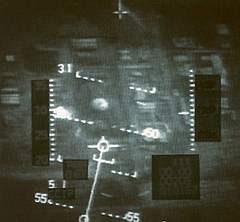Straw presses Iran to respect nuclear freeze
BRUSSELS (AFP) - Iran must respect the spirit as well as the letter of an agreed nuclear fuel cycle freeze, Foreign Secretary Jack Straw said ahead of EU-Iran talks on confidence measures to show Tehran is not making atomic weapons.
AFP/File Photo
But Tehran hinted it was ready to reintroduce a demand, already refused by the European Union (news - web sites), for some nuclear equipment to be exempted from the freeze.
"What is important is that each side accepts both the spirit as well as the letter" of an agreement on Iran suspending all uranium enrichment activities that was reached in Paris November 7, Straw told reporters before the gathering in Brussels.
Straw, along with German and French foreign ministers Joschka Fischer and Michel Barnier, as well as EU foreign affairs chief Javier Solana, were to meet with top Iranian nuclear negotiator Hassan Rowhani to discuss the Paris agreement.
The accord, endorsed by the UN watchdog International Atomic Energy Agency (IAEA), promises Tehran trade, technology and security rewards in return for fully suspending enrichment, a crucial fuel-making process that can also be used to make atomic weapons.
The European trio refused at an IAEA meeting in Vienna last month to let Iran withhold 20 centrifuges -- the machines that enrich uranium -- from the freeze in order to do research, saying the halt must be total and involve all related enrichment activities.
Straw said: "We'll be discussing ... the full implementation of the Paris agreement."
"The words of the Paris agreement mean what they say," he said.
But in Tehran government spokesman Abdollah Ramazanzadeh said Iran was sticking to its demand that 20 centrifuges be excluded.
"The question of halting research is not on the agenda," he said.
Ramazanzadeh said however: ""We are optimistic over the results of the negotiations given the good faith that we have shown and they have shown."
Straw said the European trio and Iran would be setting up "three working groups to take forward the Paris agreement and after that meeting I will have a bilateral discussion with Dr Rowhani."
The working groups cover the incentives Iran is to be offered over the long term. They are in technology and cooperation, nuclear issues, politics and security, diplomats said.
"This process is going to take off today," a senior European diplomat told AFP, adding that it would take "a bit longer" than the three-month deadline the Iranians have set.
The road is fraught with difficulties since Iran says its suspension of uranium enrichment is a temporary measure designed to show its intentions are peaceful, while EU negotiators Britain, France and Germany want it to become permanent, diplomats said.
The IAEA has been investigating Iran's nuclear programme for almost two years on US charges, which Tehran denies, that the Islamic republic is secretly developing nuclear weapons.
Iran said Sunday that it was not prepared to accept a permanent freeze as it claims it has the right to do enrichment under the nuclear Non-Proliferation Treaty.
Rowhani warned that the Islamic republic would abandon the talks, and the suspension, if no progress was being made.
The two sides will be negotiating a long-term accord that includes "objective guarantees" Iran will not develop the bomb.
Iran will get incentives such as promises to help it join the World Trade Organization (news - web sites) and to obtain a light water research reactor. Tehran would in turn abandon plans to build a heavy water reactor that would be more capable of producing bomb-grade material.
The IAEA had on November 29 decided against referring Iran to the UN Security Council for threatened sanctions, as the United States wants, after Tehran agreed on the suspension.
In a sign of continuing concern about Iran's intentions, diplomats said last week that the Islamic Republic was conducting secret high-energy neutron experiments that could be civilian-oriented or directed towards making nuclear weapons.
The diplomats told AFP in Vienna there was concern since the experiments are allegedly taking place under military supervision.
The IAEA is trying to look into claims from the United States and the main exiled Iranian opposition group that Iran is hiding nuclear weapons development at military facilities





